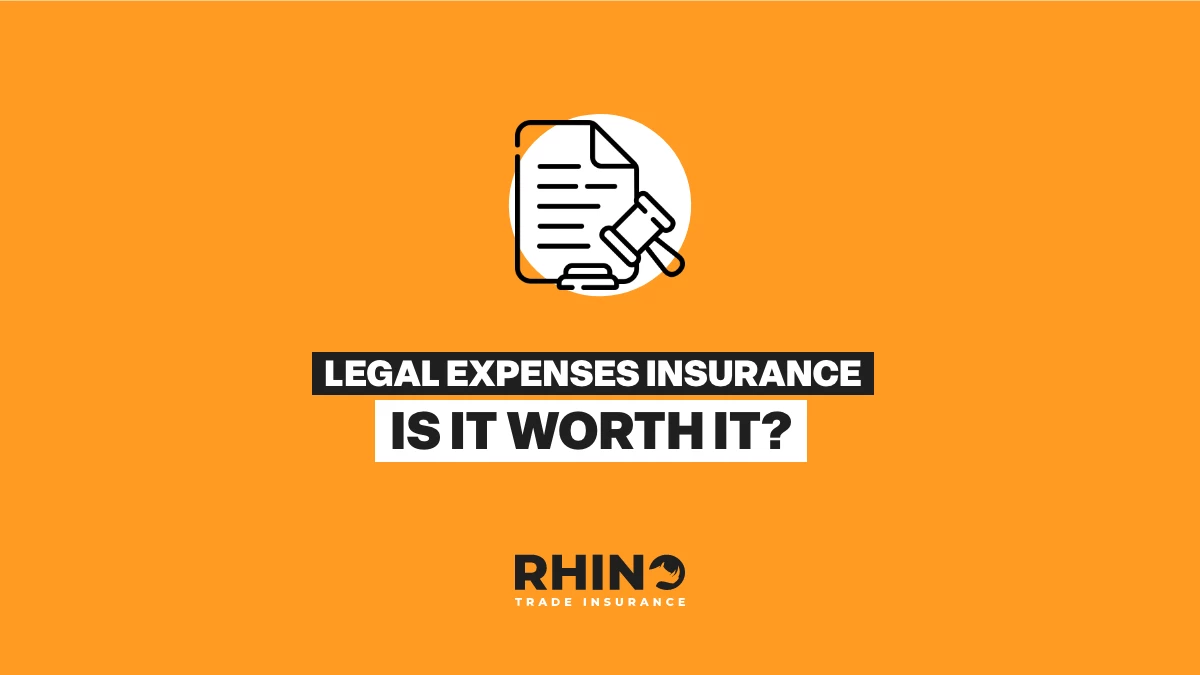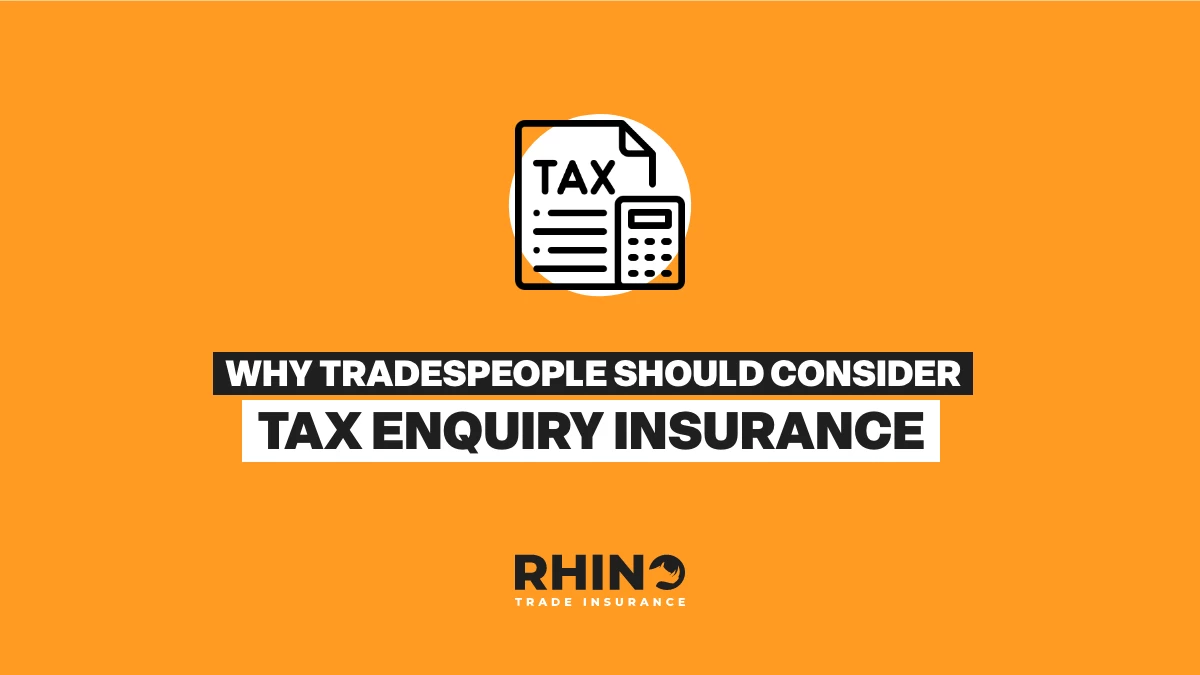
Legal Expenses Insurance – Is it Worth It?
Legal Expenses Insurance for tradespeople explained—what it covers, when you might need it, and how it protects against costly legal fees.
Let’s tackle a tricky topic and talk about one of the most-misunderstood policies out there.
Employer’s Liability Insurance is a policy which will protect you when one of your employees is injured or becomes ill as a result of doing their job. But what does Employer’s Liability Insurance cover – and do you need to have it if you’re a subcontractor?
Employer’s Liability Insurance is designed to protect both employees and employers from the costs of compensation claims. It’s been a legal requirement in the UK since the Employer’s Liability Act was passed in 1969.
If you’re an employee, Employer’s Liability Insurance offers you the assurance that you won’t lose out financially if something happens to you while you’re working. Your boss will be obliged to pay for damages and compensation, helping to make things right.
If you’re an employer, then Employer’s Liability Insurance is good news for you, too. This is because as an employer, you are directly liable if someone working for you has an accident at work or becomes unwell due to their job. Not only this, but you’re also liable for any damage to their property which occurs while they’re working. When you’re covered by Employer’s Liability Insurance, your insurer will bear the cost of this liability including (but not limited to) legal expenses, medical and rehabilitation costs, missed income and compensation for pain, suffering and inconvenience.
It’s important to know that Employer’s Liability claims can still be made years after the employee has left the job. This is because it can sometimes take a long time for certain work-related conditions to show up. For example, asbestos-related industrial disease claims from former construction workers in the UK came decades after initial asbestos exposure, as symptoms took up to 30 years to become apparent.
It’s important to know that all employers in the UK need Employer’s Liability Insurance. It’s a legal requirement if you employ anyone, and the penalties if you’re caught without it are harsh – you can be fined £2,500 for every day you’re uninsured.
If your contracting agreement allows it, you may be able to hire employees as a subcontractor. This can be a grey area, so you should check the fine print carefully. If you are able to hire someone under you, they must be covered by Employer’s Liability Insurance if they are considered an ‘employee’ in the eyes of HMRC.
You might be wondering exactly who counts as an ‘employee’. Employees who must be covered under your Employer’s Liability Insurance include the following:
*Labour-only subcontractors are essentially employees and are treated as such in law. A labour-only subcontractor requires training and supervision to do the job at hand, and do not come with their own tools. Labour-only subcontractors don’t have their own limited companies or pay their own tax and National Insurance via Self-Assessment.
There are a couple of exceptions to the rule. You don’t need Employer’s Liability insurance if:
*Bona-fide contractors are self-employed workers who have their own tools, can carry out work unsupervised and have their own limited companies or are registered as sole traders. Bona fide subcontractors are registered for tax and National Insurance.
How Much Employer’s Liability Insurance Do Subcontractors Need?
Your Employer’s Liability Insurance policy should have a coverage limit of at least £5million and be provided by a registered insurer.
Does Employer’s Liability Insurance Cover Workplace Harassment?
No, Employer’s Liability Insurance does not cover things like discrimination, harassment or wrongful termination. It is only for injury, illness or property damage incurred as a result of working for an employer.
They’re similar policies, but there is a key difference between the two. While Employer’s Liability Insurance covers you from the cost of compensation claims from your own employees, Public Liability Insurance will shield you from compensation claims made against you by third parties, including customers and members of the public.
Both are crucial policies for any tradesperson who hires anyone else.
Example #1
Here’s an example of a situation where Employer’s Liability Insurance for subcontractors would come into play.
Brian the plumber is contracted to work on the renovation of a building. Brian’s temporary apprentice, Dean, is helping him. Brian fails to give Dean a hard hat while he is working on pipes in a crawlspace. Dean hits his head, requiring stitches and time off work to recover. Dean makes a claim against Brian for the injury, seeking compensation for his suffering and inconvenience. Brian makes a claim on his Employer’s Liability Insurance, and Dean receives a payout from Brian’s insurer. Brian does not have to pay a penny, and his professional reputation remains intact.
Example #2
In this example, Public Liability Insurance for subcontractors is the star.
Nina is a painter and decorator who is hired to work on a painting job for a company as part of a larger renovation project. Nina’s task is to paint the external façade of a newly-built shop. She sets up the job and gets to work. A visitor to the shop trips over a paint tin Nina left out, breaking their wrist as well as a laptop they were carrying. The victim made a claim against Nina for the injury, including compensation, damages for the broken laptop and the cost of a solicitor to handle the claim. Nina didn’t have to pay – she simply claimed on her Public Liability Insurance and her insurer handled the rest.
By law, your Employer’s Liability Insurance policy should have a limit of indemnity of at least £5million. This is the maximum amount your insurer will pay out in the event of a claim. If you wish, you can increase this up to a maximum of £ 10 million. This might sound like a lot, but liability claims can reach staggering sums, so it’s always best to feel fully protected no matter what happens while on the job.
Your choice of coverage limit (beyond the legally mandated £ 5 million) is a business decision for you to make. It depends on a few things, including:
In the UK, subcontractors insurance requirements might seem like a confusing area. This is because a subcontractor is viewed as an employee by some, and a separate, self-employed entity by others. The bottom line is, a bona fide subcontractor (that is someone registered for Self-Assessment or as a limited company, with their own tools and working independently) should always have their own Public Liability Insurance to protect them from third-party accidents. And if the subcontractor is also an employer, they should also be protected by at least £ 5 million in Employer’s Liability Insurance, as per UK law.
Rhino Trade Insurance are the experts in trade cover for the hardworking men and women of the UK. We offer protection against workplace claims for a low monthly or annual fee, with no extra charges if you’d rather spread the cost.
The friendly Rhino team can help you manage the claims process from start to finish, with clear instructions and no messing about.
If you’re not sure whether you need Employer’s Liability Insurance, or you’d like clarification around anything on the topic, give our friendly team a call today on 0116 243 7904.
Legal Expenses Insurance for tradespeople explained—what it covers, when you might need it, and how it protects against costly legal fees.
Worried about a tax investigation? With HMRC cracking down in 2025, Tax Enquiry Insurance from Rhino gives UK tradespeople expert protection and peace of mind.
Rhino Trade Insurance CEO Troy Stevens joins industry leaders at the House of Commons to discuss the rising issue of tool theft—highlighting its impact on UK tradespeople and the importance of awareness and protection.
Tell us your trade and get a tailored insurance quote for your business in seconds
Our team of experts are available to talk to Mon-Fri 08.30-17.30 and Sat 10.00-14.00

